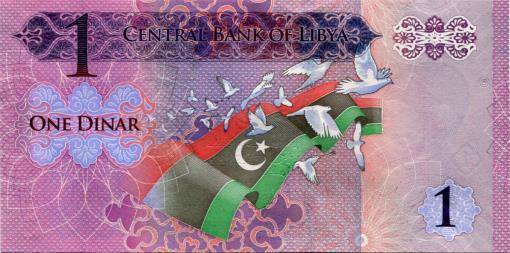
Libya’s central bank announced a 13.3% devaluation of the dinar setting, a new official exchange rate of 5.5677 to the U.S. dollar.
- Libya’s central bank devalued the dinar by 13.3% to 5.5677 to the U.S. dollar.
- The parallel market rate for the dinar is much lower at 7.20 to the dollar.
- A power struggle over control of the central bank disrupted oil production and exports, impacting the currency’s value.
Libya’s central bank announced a 13.3% devaluation of the dinar on Sunday, setting a new official exchange rate of 5.5677 to the U.S. dollar, effective immediately.
This marks the first official devaluation since 2020 when the rate was 4.48 dinars to the dollar, Reuters reported.
Meanwhile, the dinar continues to trade much lower on the parallel market, where the rate has reached 7.20 to the dollar.
DON’T MISS THIS: Top 10 African countries with the strongest currencies in March 2025
The black market rate has been volatile, particularly since September last year, when a power struggle over control of the central bank disrupted oil production and exports, triggering a drop in the currency’s value.
That crisis was resolved in September following a U.N.-brokered agreement between rival eastern and western legislative factions, which led to the appointment of a new central bank governor.
In a related move, the speaker of the eastern-based parliament reduced the tax on foreign currency purchases in November, lowering it from 20% to 15%. This tax is added to the rate at which individuals buy foreign currencies from commercial banks.
DON’T MISS THIS: Top 10 African countries with the weakest currencies in February 2025
Mounting public debt raises concerns
According to the central bank, the combined government spending for 2024 reached 224 billion dinars (about $46 billion), including 42 billion dinars allocated to crude-for-fuel swap deals.
Public debt stands at 270 billion dinars, with projections that it could rise above 330 billion by the end of 2025 if a unified national budget isn’t agreed upon.
In December, Stephanie Koury, deputy head of the U.N. mission to Libya, urged the country’s political leaders to urgently establish a spending framework for 2025 with clear limits and oversight mechanisms.












